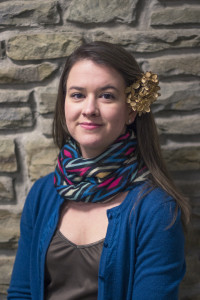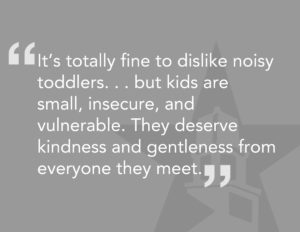My brother was born in the same month that the Harry Potter cheetahs came to the National Zoo. To this day, my most pressing memory of the day that I first met him is driving home from a week of summer camp in my cousin’s bright red Hyundai, talking about those cheetahs. It was a courageous attempt to help me avoid thinking about the fact that my family was now one person larger. (The cheetah’s names, if you’re interested, were Draco, Granger, and Zabini.)
 I cried when I held my brother for the first time, but it wasn’t a “miracle of childbirth” moment. As a lifelong only child, I was terrified of infants, I was terrified of pregnant people, and I was terrified of breastfeeding. Mostly, I was terrified of that curdled yellow vomit we’ve somehow resolved to call “spit,” and which mothers have some preternatural ability to arrest in a napkin before it slimes its way onto your T-shirt.
I cried when I held my brother for the first time, but it wasn’t a “miracle of childbirth” moment. As a lifelong only child, I was terrified of infants, I was terrified of pregnant people, and I was terrified of breastfeeding. Mostly, I was terrified of that curdled yellow vomit we’ve somehow resolved to call “spit,” and which mothers have some preternatural ability to arrest in a napkin before it slimes its way onto your T-shirt.
All of this to say: I know exactly how you feel when you say you don’t want kids, and I’m not trying to convince you that you do. So please hear me out. On one level, I understand the “childfree” mindset perfectly. It has its perks: perfectly clean upholstery, going to the movies at 11 p.m. with zero repercussions, leisurely weeklong vacations, cushy retirement accounts.
Even more importantly: no gummed-up sippy cups, no mushy peas spooned out of a jar, no dinky plastic cutlery, no soggy diapers, no mini-vans with Cheerios cluttering the floor, no endless reruns of Thomas The Tank Engine or Frozen or Cars 14, no blankets that can only be hand washed because someone decided to gnaw holes through them. No time off work (okay, maybe that’s a benefit). No morning sickness. No frumpy stomach. No constant exhaustion.
Some of us will choose to have kids, for many reasons. Some of us will choose not to have kids, for an even wider variety. Some of us will choose to have kids, and then not be able to, and then pretend that we had never wanted to anyway. Some of us will choose not to, and then wonder thirty years later whether we made a mistake.
But the operative word in all those possibilities? Choice. In this age of hormone pills and UTIs, I want to throw out a word of caution to the cheerfully childless. While having children may be purely optional these days, treating them kindly and respectfully is not. No child deserves to be treated like some sort of lifestyle enhancement that you can agree or disagree with. A personal, private decision does not entitle you to hurl the epithets that I have seen aimed at children this year. They are not “monsters,” “vermin,” “snot munchers,” “sh**heads,” “runts,” “whiny brats,” or “hellspawn.” They’re just tiny people who drop things a lot.
 You expect people to say those kinds of things on the Internet, I thought that I would never encounter kind of language at Houghton, but I was wrong. Just a few months ago, a large group of elementary schoolers visited the dining hall as part of an on-campus educational event. I stood behind a pair of young women who were apparently so disgusted that children had been allowed to interrupt their daily routine that they publicly talked about throwing one of them off the roof. If this story sounds a little like public shaming, it is, and I hope at least one of those people is reading it.
You expect people to say those kinds of things on the Internet, I thought that I would never encounter kind of language at Houghton, but I was wrong. Just a few months ago, a large group of elementary schoolers visited the dining hall as part of an on-campus educational event. I stood behind a pair of young women who were apparently so disgusted that children had been allowed to interrupt their daily routine that they publicly talked about throwing one of them off the roof. If this story sounds a little like public shaming, it is, and I hope at least one of those people is reading it.
It’s totally fine to dislike noisy toddlers or feel a little uncomfortable around babies. I’m not asking you to teach Vacation Bible School, or become a crossing guard, or patrol parks with a Kleenex, ready to wipe snot off the nearest sniffly face. But kids are small, insecure, and vulnerable. They deserve kindness and gentleness from everyone they meet.
Some people might protest that it’s hypocritical, even cruel, to be kind to a person or group that you secretly dislike. “It would be dishonest to pretend to like kids,” they remark sagely, “when I actually can’t stand them.” If you’ve said this, I’m here to tell you that you sound about as mature as that kid in high school who said he wasn’t racist because he hated everyone equally. Divorcing your public behavior from your private feelings isn’t dishonest. It’s called being an adult. If you don’t like children, that’s fine. But maybe it’s time to stop acting like one.
Carina is a senior majoring in communication and writing.
